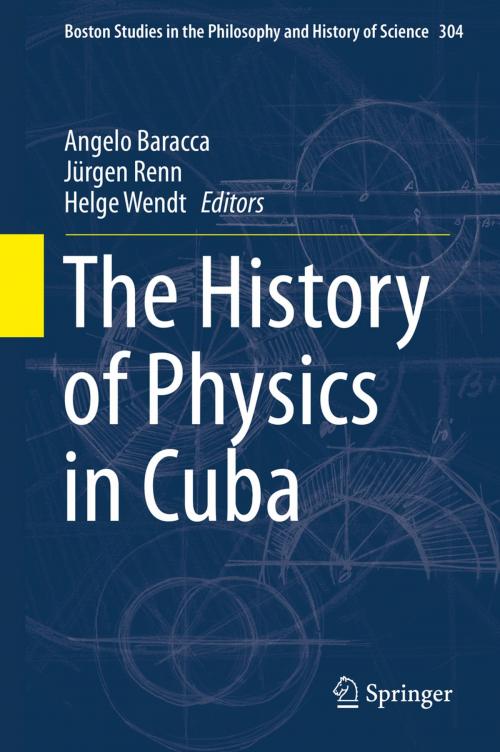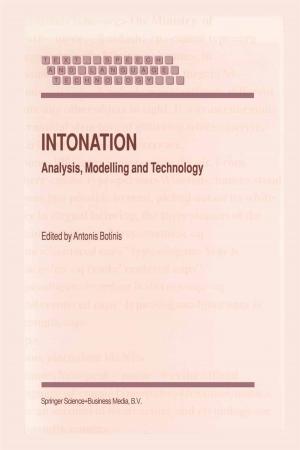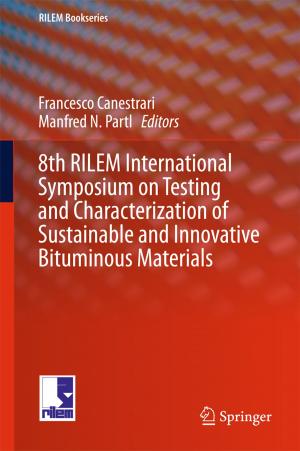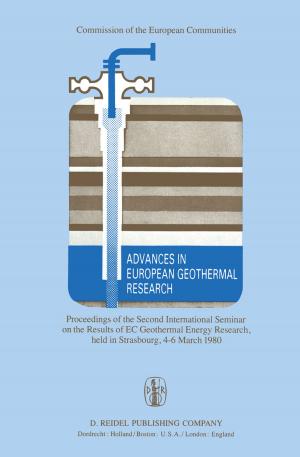The History of Physics in Cuba
Nonfiction, Science & Nature, Science, Physics, General Physics, Other Sciences, History| Author: | ISBN: | 9789401780414 | |
| Publisher: | Springer Netherlands | Publication: | April 22, 2014 |
| Imprint: | Springer | Language: | English |
| Author: | |
| ISBN: | 9789401780414 |
| Publisher: | Springer Netherlands |
| Publication: | April 22, 2014 |
| Imprint: | Springer |
| Language: | English |
This book brings together a broad spectrum of authors, both from inside and from outside Cuba, who describe the development of Cuba's scientific system from the colonial period to the present. It is a unique documentation of the self-organizing power of a local scientific community engaged in scientific research on an international level. The first part includes several contributions that reconstruct the different stages of the history of physics in Cuba, from its beginnings in the late colonial era to the present. The second part comprises testimonies of Cuban physicists, who offer lively insights from the perspective of the actors themselves. The third part presents a series of testimonies by foreign physicists, some of whom were directly involved in developing Cuban physics, in particular in the development of teaching and research activities in the early years of the Escuela de Física. The fourth part of the volume deals with some of the issues surrounding the publishing of scientific research in Cuba.
Cuba’s recent history and current situation are very controversial issues. Little is known about the development and status of higher education and scientific research on the island. However, Cuba has one of the highest proportions in the world of people with a university degree or doctorate and is known for its highly developed medical system. This book focuses on a comprehensive overview of the history of the development of one specific scientific discipline: physics in Cuba. It traces the evolution of an advanced research system in a developing country and shows a striking capacity to link the development of modern research with the concrete needs of the country and its population. A little known aspect is the active participation of several “western” physicists and technicians during the 1960s, the role of summer schools, organized by French, Italian, and other western physicists, as well as the active collaboration with European universities.<
This book brings together a broad spectrum of authors, both from inside and from outside Cuba, who describe the development of Cuba's scientific system from the colonial period to the present. It is a unique documentation of the self-organizing power of a local scientific community engaged in scientific research on an international level. The first part includes several contributions that reconstruct the different stages of the history of physics in Cuba, from its beginnings in the late colonial era to the present. The second part comprises testimonies of Cuban physicists, who offer lively insights from the perspective of the actors themselves. The third part presents a series of testimonies by foreign physicists, some of whom were directly involved in developing Cuban physics, in particular in the development of teaching and research activities in the early years of the Escuela de Física. The fourth part of the volume deals with some of the issues surrounding the publishing of scientific research in Cuba.
Cuba’s recent history and current situation are very controversial issues. Little is known about the development and status of higher education and scientific research on the island. However, Cuba has one of the highest proportions in the world of people with a university degree or doctorate and is known for its highly developed medical system. This book focuses on a comprehensive overview of the history of the development of one specific scientific discipline: physics in Cuba. It traces the evolution of an advanced research system in a developing country and shows a striking capacity to link the development of modern research with the concrete needs of the country and its population. A little known aspect is the active participation of several “western” physicists and technicians during the 1960s, the role of summer schools, organized by French, Italian, and other western physicists, as well as the active collaboration with European universities.<















